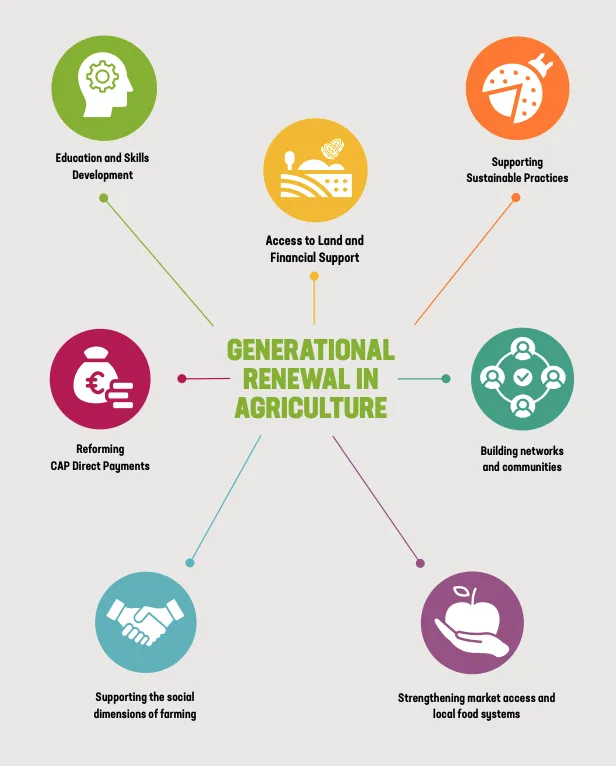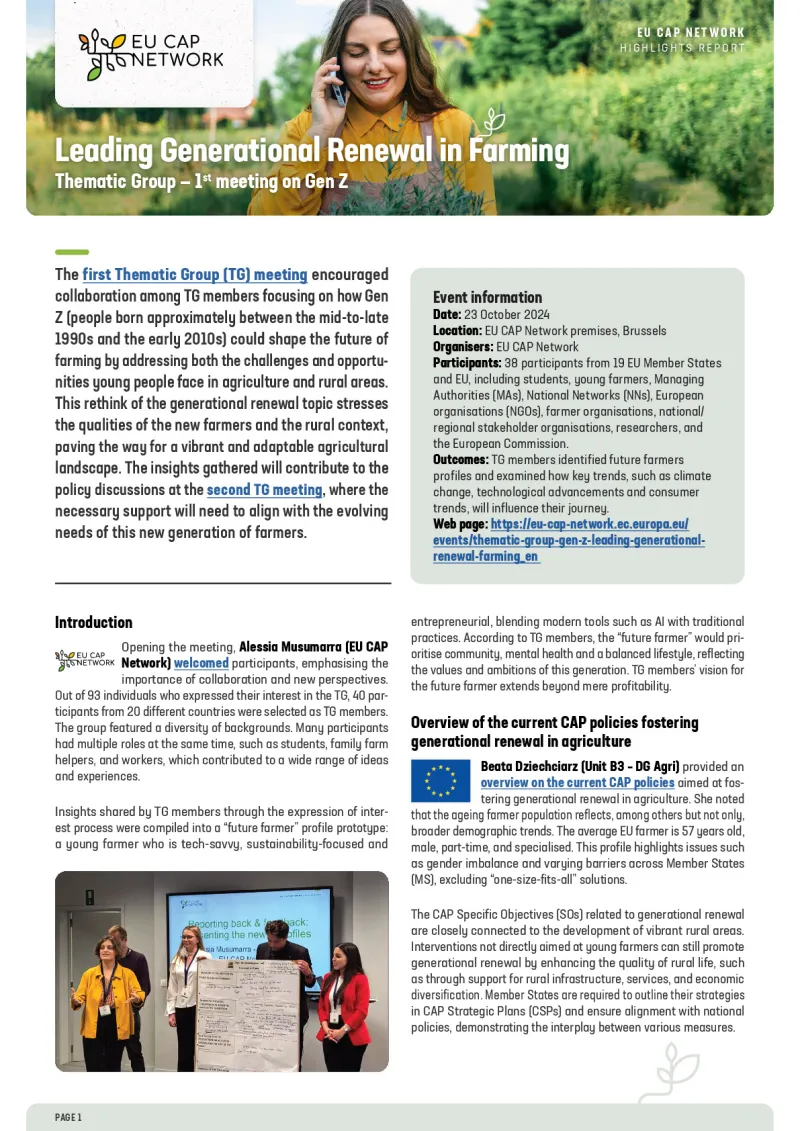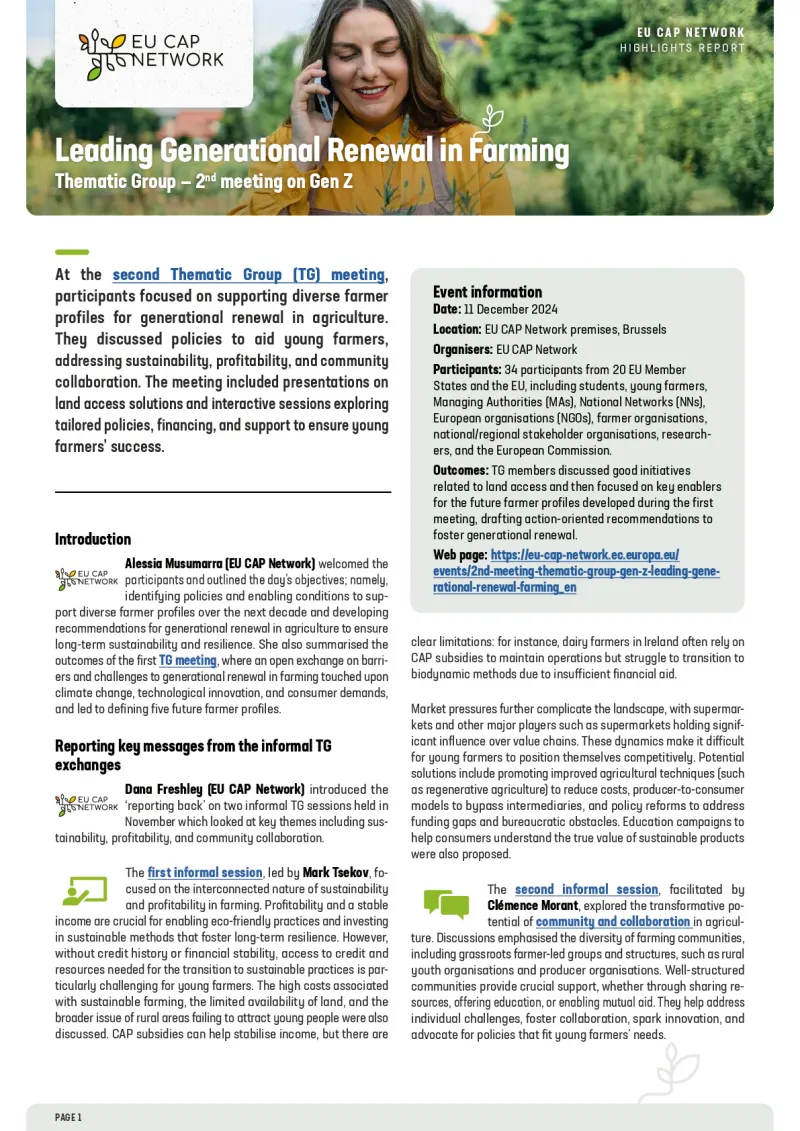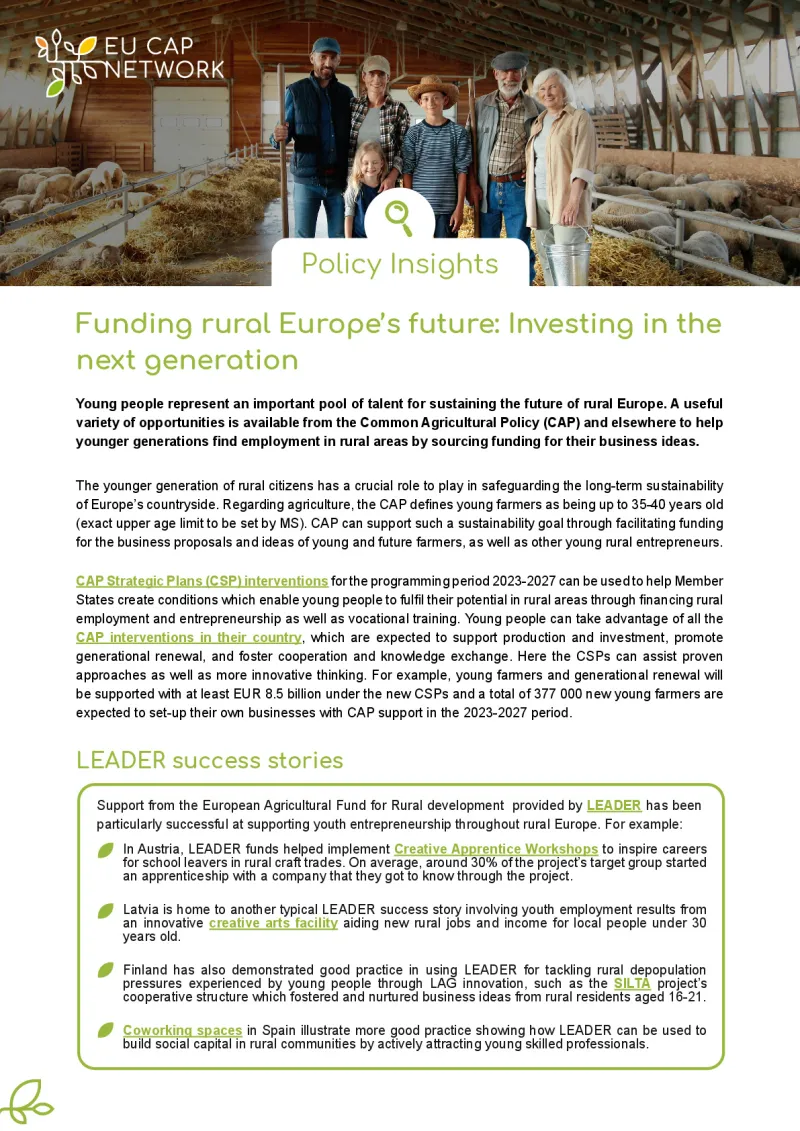Let Gen Z lead generational renewal in agriculture
- CAP Implementation
- Generational Renewal
- Agricultural Productivity
- CAP Strategic Plans
- Jobs, Growth and Equality in Rural Areas
Young CAP stakeholders worked on practical recommendations to foster generational renewal in agriculture – key to more sustainable farming and resilient rural areas.

Education and skills development, access to land and markets, sustainability and Common Agricultural Policy (CAP) payments are the main areas where policy and practice need to improve in order to foster generational renewal in agriculture, according to the recommendations developed by the EU CAP Network Thematic Group Gen Z: Leading Generational Renewal in Farming.
Between October and December 2024, the Thematic Group (TG) approached the topic of generational renewal in farming using five potential farmer profiles. These profiles aim to represent the diversity of young farmers' aspirations and challenges, their evolution over the next ten years, and the factors that will enable this evolution. A dynamic and committed group of young CAP stakeholders (mostly under 30 years of age) examined potential future scenarios and suggested policy recommendations on how to support generational renewal in agriculture and to empower future farmers to be sustainable and resilient in the long term.
The TG work culminated in a set of recommendations that explored seven main areas of action and put forward practical proposals to ensure that farming becomes a more attractive and viable career option for young people. These recommendations are summarised in an easy-to-read document, which also includes a list of interesting examples, such as Ireland's Land Mobility Service, France's Terre de Liens and the Farm Lease Decree in Flanders (Belgium).

Seven areas for improvement
In the area of education and skills development, TG members recommend enhancing educational programmes and offering more (and more easily accessible) opportunities for practical training.
Access to land and financial support could improve through a European Land Observatory, tailored financial support and more supportive credit systems - also enhancing awareness of existing support mechanisms such as European Investment Bank initiatives with focus on young farmers, gender equality and green investments.
Incentives for sustainability, the adoption of digital tools and technological innovation, and transition programmes can support the adoption of (and the transition to) sustainable practices.
The social dimension of farming should be better acknowledged and supported, addressing challenges such as work-life balance, gender inclusion and the public perception of farmers.
Reforming CAP payments is seen as crucial to address specific challenges faced by young farmers. The recommendations concern the conditionality of direct payments, their eligibility criteria and the whole system of per-hectare payments, as well as the complexity of application procedures and access to information.
Young CAP stakeholders also consider market access and local food systems a crucial piece of the puzzle and ask for fair(er) trade and market access, more collaborative market frameworks and better rural-urban connections.
Many of these recommendations come from actual experiences in different EU countries, and a number of examples of support programmes and tools are briefly described at the end of the document.

Increasing young stakeholders’ involvement
The involvement of young people is crucial to breathing new life into the agricultural sector, ensuring its long-term sustainability and, at the same time, making rural areas more resilient and attractive. The EU CAP Network has been actively working to amplify youth voices, also creating spaces for exchanges and discussions through dedicated events and thematic work.
Learn more about our current Thematic Groups in this round-up and stay informed of all our activities through our monthly newsletter and social media (@EUCAPNetwork).


